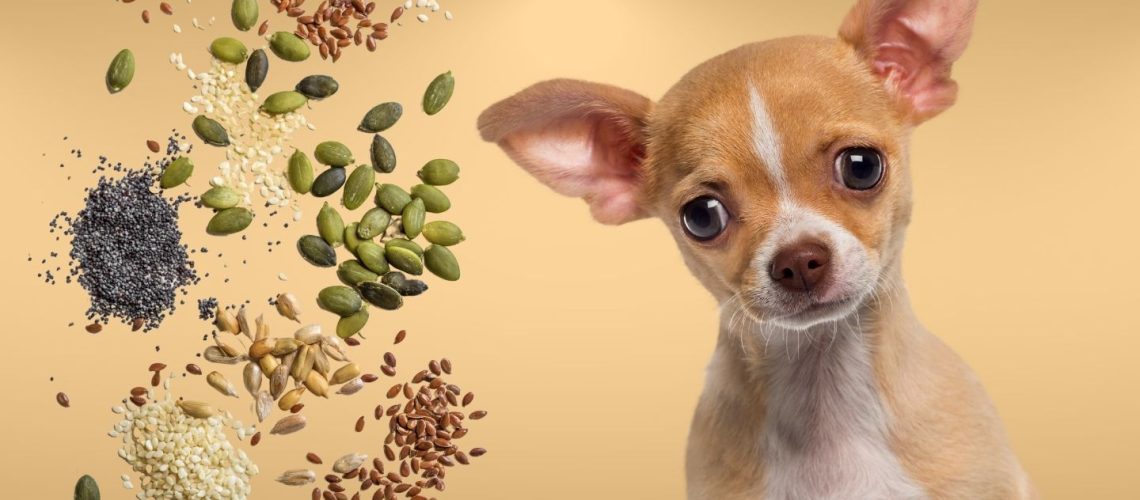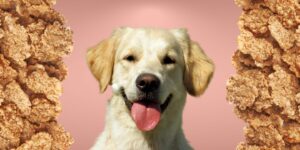The short answer is yes, dogs can eat seeds. However, there are some things to consider before giving your dog seeds as a treat. Seeds can be a healthy addition to your dog's diet, but it's important to choose the right types of seeds and feed them in moderation.
Benefits of Seeds for Dogs
Seeds are packed with nutrients that can benefit your dog's health when given in moderation.
Nutrient content in seeds
Seeds are rich in fiber, vitamins, and minerals, making them a nutritious addition to your dog's diet.
Health benefits of specific seeds
Sunflower seeds
Sunflower seeds are rich in vitamin E and healthy fats, which can help support your dog's skin and coat.
Pumpkin seeds
Pumpkin seeds are a natural source of antioxidants and can help reduce inflammation, as well as support urinary health in dogs.
Flax seeds
Flax seeds are an excellent source of omega-3 fatty acids, which can help support your dog's immune system, brain function, and heart health.
Potential Risks and Precautions
While some seeds are safe for dogs to eat, others can be toxic or cause other health issues.
Seeds that are toxic to dogs
Apple seeds
Apple seeds contain cyanide, which can be toxic to dogs if ingested in large quantities.
Cherry pits
Cherry pits also contain cyanide and can pose a choking hazard if swallowed whole.
Grape seeds
Grape seeds can be toxic to dogs and should be avoided, along with grapes and raisins.
Choking hazards and digestive issues
Large seeds or whole seeds can pose a choking hazard and be difficult for dogs to digest, potentially leading to stomach upset.
Allergic reactions
Some dogs may be allergic to certain seeds, leading to adverse reactions such as itching, swelling, or difficulty breathing.
Salt and seasoning concerns
Seeds that have been salted or seasoned can be unhealthy for dogs and should be avoided.
How to Feed Seeds to Dogs
When feeding seeds to your dog, it's important to prepare them properly and mix them with other foods to ensure they are safe and easy to digest.
Preparing seeds for your dog
Grinding or crushing
Grinding or crushing seeds can make it easier for your dog to digest them and reduce the risk of choking.
Roasting
Roasting seeds can help remove any potential toxins, making them safer for your dog to eat.
Soaking
Soaking seeds in water can help soften and break down their outer coating, making them easier for your dog to digest.
Mixing seeds with other foods
To prevent choking and aid digestion, it's a good idea to mix seeds with other dog-friendly foods, such as yogurt or dog food.
Store-bought dog treats containing seeds
Dog treats that contain seeds are a convenient option, but be sure to choose treats made with dog-safe seeds and without added salt or seasonings.
Alternatives to Seeds for Dogs
If you're looking for other healthy snack options for your dog, consider fruits, vegetables, lean meats, or dog-safe nuts.
Fruits and vegetables
Apples, bananas, carrots, and green beans are all safe and healthy options for dogs.
Lean meats
Lean meats such as chicken, turkey, or fish can provide your dog with essential nutrients and protein.
Dog-safe nuts
Peanuts and almond butter are safe and nutritious options for dogs, as long as they are unsalted and given in moderation.
Conclusion: Can Dogs Eat Seeds?
In conclusion, dogs can eat certain seeds as treats, but it's essential to choose the right seeds and feed them in moderation. Consult with your veterinarian before introducing seeds into your dog's diet, and always consider their overall health and dietary needs. By balancing your dog's diet with seeds and other healthy options, you can ensure they receive all the essential nutrients they need to maintain their well-being.











